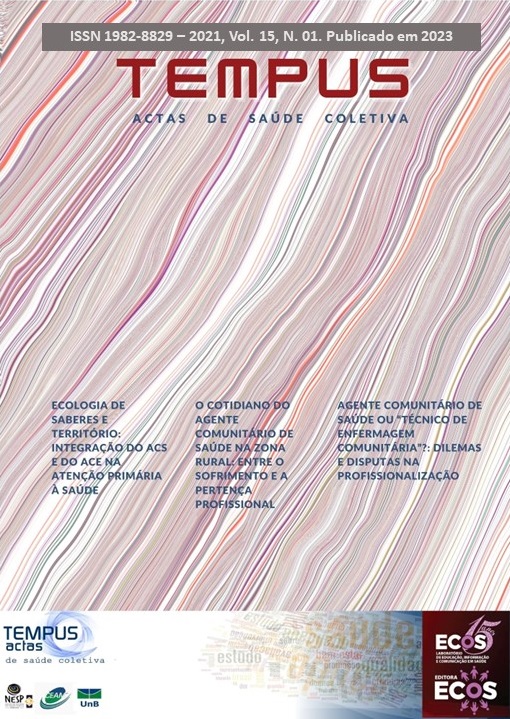Abstract
A The origin of the idea that culminated in the existence of the role of Community Health Agent (ACS) is not known clearly. There are those who attribute the origin of contemporary ACS to the figure of the feldsher, a medical assistant who emerged in Czarist Russia. In Brazil, the role of ACS arises in the city of Jucás, Ceará, between 1979-1986, inspired by the Canadian and Cuban experience. There is a certain hegemonic way of looking at these professionals and their actions in the field of knowledge production. It is insisted on describing this professional as lacking technical-scientific training and an object of evaluation. Few works are dedicated to the potential and strengthening of the profession, with its particular identity of community leadership, social belonging and the production of bonds beyond its technical-scientific capacity. The objective of this work is to recognize experiences as intersubjective processes that shape and qualify the relationships and practices of care from the narratives of ACSs. For this, we used narrative interviews with six ACSs from a mixed health unit in the north of São Paulo in August 2019. By dialoguing with the idea of ??experience and knowing the experience developed by Jorge Larrosa, we built a small space of possibility to discuss care technologies. The traditional education process does not consider the different layers of understanding of the world and ways of relating that operate as modulators of relationships and practices, which makes aspects of our professional practice conditioned by other cultural and relational factors invisible, leading to meaningless education processes and normative.
A Tempus garante critérios rigorosos, por meio de avaliação sistemática. Os autores se responsabilizam pela veracidade e ineditismo do trabalho cabendo a eles a cessão de direitos de publicação à revista. A confiabilidade dos conteúdos e a marca própria de apresentação tem como objetivo uma comunicação personalizada, adaptada aos padrões da revista, na medida em que adota critérios de excelência exigidos por seus usuários e especialistas, considerando os rigores da comunicação científica. Os autores devem especificar sua contribuição individual na concepção, delineamento, execução do trabalho, análise ou interpretação dos dados, redação e aprovação final do manuscrito. Incluir Fontes de financiamento e de apoio logístico das pesquisas. Ao final da submissão do artigo, os autores devem enviar uma declaração de cessão de direitos de publicação à Revista TEMPUS , assinada e no formato PDF (Portable Document Format ): Modelo da declaração de cessão de direitos.
